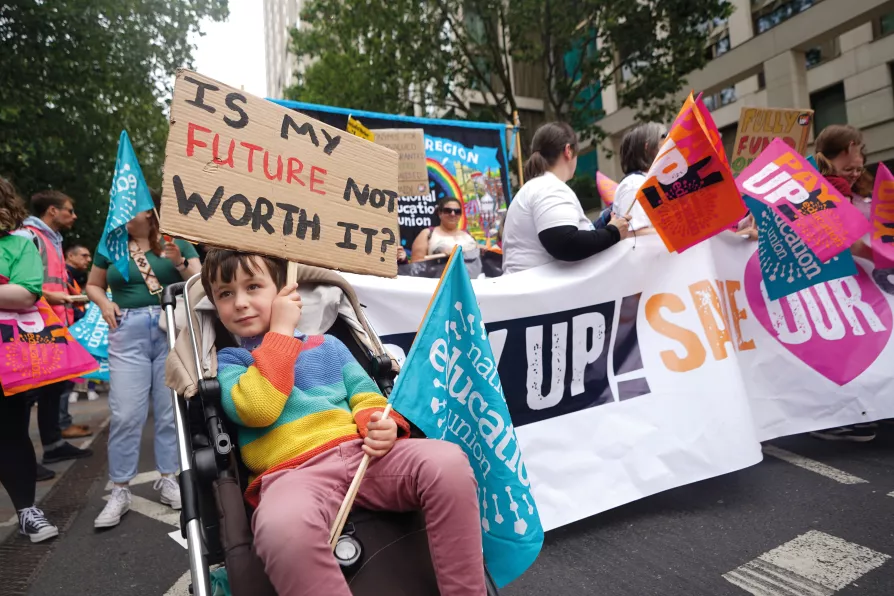This weekend, the NEU holds a special conference to debate changing its approach to organising teaching assistants, which a 2017 TUC agreement forbids. General secretary DANIEL KEBEDE outlines the choices before delegates

 RIGHT IDEA: Kids take part in an NEU rally last year
RIGHT IDEA: Kids take part in an NEU rally last year
TRADE unions have a significant part to play in protecting workers’ rights and ensuring fair treatment in the workplace because, not only they are a vehicle for uniting the working class in the fight for better pay and terms and conditions, but more importantly, they are essential not only for improving our working conditions but to fundamentally change the wider society that we live in and challenge the exploitative and unjust system that is capitalism.
This is especially important for young workers, who face a variety of unique challenges today. These include precarious work, stagnant wages, and little opportunity to progress at work. Furthermore, few young workers are in a trade union, with only one in 20 trade union members being aged 16-24.
Young workers bear the worst consequences of the cost-of-living crisis and the worsening job market which offers increasingly worse material conditions. The ruling class take advantage of the youth in the fact that they are not organised enough to fight against their own exploitation.

Our charter’s demands for fair pay, affordable housing and environmental security will recruit working-class youth into the political struggle for socialism, emulating the success of the Women’s Charter, writes YCL general secretary GEORGINA ANDREWS

In part one of a two-part feature, CONOR BOLLINS asks whether we should be concerned about the Prime Minister’s military recruitment plans












